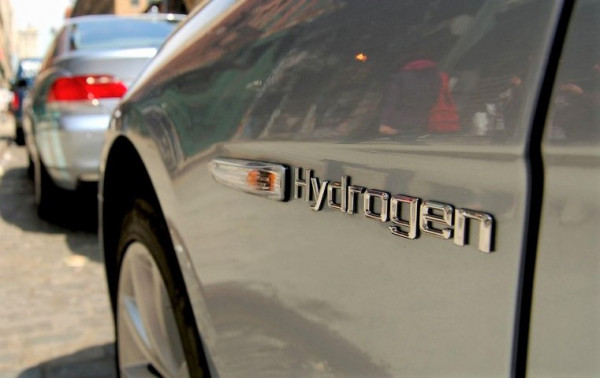Hailing the next hydro-generation of fuel – help shape a new standard
Help inform the development of a new APEC low-carbon hydrogen international standard and read how hydrogen is hailed as the next generation of green fuel.

Credit: Skidder CC BY-NC-ND 2.0
Hydrogen produced by methods that emit relatively low levels of greenhouse gases can be a preferable option to use in transportation and electricity generation, to help meet green energy demands.
Over the past year Standards New Zealand and the trade and international team at the Ministry of Business, Innovation and Employment Hīkina Whakatutuki have been working with industry experts to develop a green credentialing standard that is internationally recognised for the production of hydrogen. This has led to the establishment of the New Zealand-led APEC Sub-Committee on Standards and Conformance (or APEC SCSC 05 2020 Low-Carbon Hydrogen International Standard) working with the APEC Energy Working Group (EWG).
While New Zealand is small, the APEC region within which we operate and trade accounts for 60% of world energy demand, and here New Zealand can be leaders in proactive change.
Solutions to emissions reduction requires significant economic and social change for countries across the world. The systems and processes that fit around solutions can be too big for many countries to own and drive singularly. Here international collaboration through APEC supports a shift towards adopting new technology and renewable or carbon-reduced energy sources.
Here’s where you can help
The members of the APEC SCSC 05 2020 are seeking views to inform the scope and approach to the development of an international standard and options for certifying the low-carbon credentials of hydrogen products. Such a standard could encourage investments in low-carbon hydrogen, thereby encouraging emissions reduction, facilitating the achievement of APEC’s energy goals and supporting post-COVID-19 economic recovery.
We’re looking for views from economy representatives, standards development organisations, conformity assessment bodies, accreditation bodies, energy and climate change response subject-matter experts, hydrogen suppliers, industry associations, verifiers and assurance providers and relevant regulatory bodies.
You can share your views, and find further information on the project, in the link below. The survey closes Monday 6 December.
APEC SCSC 05 2020: Low-Carbon Hydrogen International Standard - Project survey(external link)
Why hydrogen?
Hydrogen is hailed by many as the fuel of the future, as it can contribute towards global decarbonisation. While the most common method of hydrogen production comes from separating hydrogen from fossil fuels, the processing allows for important carbon capture and storage. Other, carbon-free, methods of production include electrolysis of water through solar, wind or nuclear power producing zero greenhouse gases and only heat and water as by-products.
Standards New Zealand’s Senior Standards Project Manager Chris Forsman, who specialises in the energy sector, acknowledges New Zealand is doing its part to support advances in hydrogen fuel adoption: ‘New Zealand is one of 20 countries, plus the European Union, committed to hydrogen strategies, setting a context and mandate towards alternative green energies,’ says Chris. ‘Standards can provide consensus-based checks for associated technologies, systems and regulatory framework, so that hydrogen use is safe and efficient for all users, industry and regulators.’
Technology advances are being developed worldwide including:
- a US company using hydrogen-fuelled trucks to help reduce long haul heavy transport CO2 emissions
- a Chinese initiative, using hydrogen-fuelled buses that achieve over 500 km from a single tank
- a Hamburg-based steel making factory using hydrogen.
International standards already exist for hydrogen use including:
- ISO 14687:2019 Hydrogen fuel quality – Product specification
- ISO 22734:2019 Hydrogen generators using water electrolysis – Industrial, commercial, and residential applications
- ISO 23828:2013 Fuel cell road vehicles – Energy consumption measurement – Vehicles fuelled with compressed hydrogen
These and others will likely continue to be developed and revised as the sector evolves over the coming years.
As a transport fuel, hydrogen use is still in its infancy. Government regulators and industry are seeking to address issues around safely scaling-up production and the appropriate infrastructure necessary to support hydrogen storage and transportation. Meanwhile, policy writers are watching keenly from the sidelines, as this technology continues to evolve and represents a credible step away from traditional fossil fuel dependency and mass carbon emissions.
